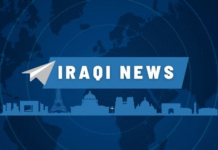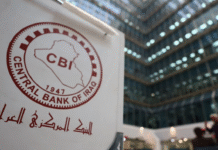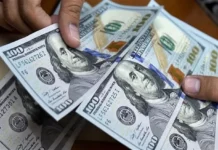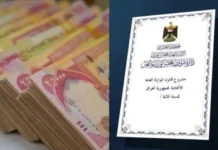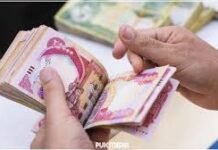Good Morning ,
AI NEWS: UN CALLS FOR GLOBAL AI GOVERNANCE AS META & OPENAI FACE CHALLENGES
AI News: UN advisory body proposes 7 recommendations for global AI governance to address risks, transparency, and unequal development.
▪️UN advisory urges global AI governance, highlighting risks of concentrated power among a few AI companies.
▪️Global AI fund proposed to aid developing nations, ensuring fair capacity and collaboration in AI deployment.
▪️OpenAI restructures safety oversight amid criticism, creating an independent body to oversee AI model safety.
AI News: The United Nations has issued seven recommendations for reducing the risks of artificial intelligence (AI) based on input from a UN advisory body. The final report of the council’s advisory body focuses on the importance of developing a unified approach to the regulation of AI and will be considered at a UN meeting scheduled for later this month.
AI News: UN Calls for Global AI Governance
The council of 39 experts noted that large multinational corporations have been able to dominate the development of AI technologies given the increasing rate of growth, which is a major concern.
The panel stressed that there is an ‘unavoidable’ need for the governance of artificial intelligence on a global scale, since the creation and use of artificial intelligence cannot be solely attributed to market mechanisms.
According to the UN report, to counter the lack of information between the AI labs and the rest of the world, it is suggested that a panel should be formed to disseminate accurate and independent information on artificial intelligence.
The recommendations include the creation of a global AI fund to address the capacity and collaboration differences especially in the developing countries that cannot afford to use AI.
The report also provides recommendations on how to establish a global artificial intelligencedata framework for the purpose of increasing transparency and accountability, and the establishment of a policy dialogue that would be aimed at addressing all the matters concerning the governance of artificial intelligence.
While the report did not propose a new International organization for the regulation, it pointed out that if risks associated with the new technology were to escalate then there may be the need for a more powerful global body with the mandate to enforce the regulation of the technology. The United Nation’s approach is different from that of some countries, including the United States, which has recently approved of ‘a blueprint for action’ to manage AI in military use – something China has not endorsed.
Calls for Regulatory Harmonization in Europe
Concurrent with the AI news, leaders, including Yann LeCun, Meta’s Chief AI Scientist and many CEOs and academics from Europe, have demanded to know how the regulation will work in Europe.
In an open letter, they stated that the EU has the potential to reap the economic benefits of AI if the rules do not hinder the freedom of research and ethical implementation of AI.
Meta’s upcoming multimodal artificial intelligence model, Llama, will not be released in the EU due to regulatory restrictions, which shows the conflict between innovation and regulation.
The open letter argues that excessively stringent rules can hinder the EU’s ability to advance in the field, and calls on the policymakers to implement the measures that will allow for the development of a robust artificial intelligence industry while addressing the risks.
The letter emphasizes the need for coherent laws that can foster the advancement of AI while not hindering its growth like the warning on Apple iPhone OS as reported by CoinGape.
OpenAI Restructures Safety Oversight Amid Criticism
In addition, there are concerns about how OpenAI has positioned itself where the principles of safety and regulation of AI are concerned.
As a result of the criticism from the US politicians and the former employees, the CEO of the company, Sam Altman, stepped down from the company’s Safety and Security Committee.
This committee was formed in the first place to monitor the safety of the artificial intelligence technology and has now been reshaped into an independent authority that can hold back on new model releases until safety risks are addressed.
The new oversight group comprises individuals like Nicole Seligman, former US Army General Paul Nakasone, and Quora CEO Adam D’Angelo, whose role is to ensure that the safety measures put in place by OpenAI are in line with the organization’s objectives.
This United Nations AI news comes at the heels of allegations of internal strife, with former researchers claiming that OpenAI is more focused on profit-making than actual artificial intelligence governance
@ Newshounds News™
Source: CoinGape
~~~~~~~~~
CARDANO FOUNDER TO MEET ARGENTINA PRESIDENT, TALK CRYPTO ECONOMY
Cardano founder Charles Hoskinson is set to meet with Argentina president Javier Milei to discuss the role of crypto in the global economy. Milei is widely known for his belief in Bitcoin as an asset class. Subsequently, the two are set to discuss how blockchain can be used for the benefit of global infrastructure.
Both Hoskinson and Milei will meet at the Tech Forum Argentina on October 19th. Hoskinson said that the conversation will be surrounding the future of blockchain in economic and political systems throughout the world. Moreover, they will place an emphasis on what can benefit Argentina specifically.
Cardano Founder to Meet With Argentina’s Milei to Talk Blockchain Potential
In December of last year, Argentina opted to elect radical presidential candidate Javier Milei. With the country’s economy in a horrid state, citizens believed in the change that Milei could bring. His arrival came with a shift in perspective. For crypto, that has been a positive thing.
Now, the country could be looking to integrate crypto even more. Reports show that Cardano founder Charles Hoskinson is set to speak with Argentina’s president to talk about the game-changing power of blockchain technology and crypto. Specifically, how that technology can reform political and economic systems.
“We’ve had many discussions with his administration, and I’m going to meet him probably on the 19th, but at some point, if not then within that time frame,” Hoskinson told Cointelegraph. “We’ve been discussing with people that work with him and form what blockchain’s future is going to look like,” he added.
Additionally, Hoskinson noted that “it’s not a Cardano-only conversation, there’s a whole family of technologies.” This ensures that the talks will center more around blockchain, and less around Hoskinson’s singular developments.
Yet, that doesn’t change the positive sentiment Cardano has enjoyed recently. A recent poll saw ADA dominate both Ethereum and Solana, according to some traders. Specifically, those market participants prefer the technology of Cardanon as opposed to both ETH and SOL.
@ Newshounds News™
Source: Watcher Guru
~~~~~~~~~
RIPPLE’S BOLD CLAIM : THE U.S. CRYPTO MARKET IS FALLING BEHIND ASIA
Ripple’s APAC Managing Director, Fiona Murray, has expressed concerns that the United States is lagging behind regions like Singapore and the UAE in fostering a crypto-friendly environment.
During Token2049 in Singapore, Murray emphasized that while the U.S. has significant potential, it remains far behind in crypto regulation and innovation.
Much of Ripple’s growth and innovation has been driven by Singapore, a region that offers a “stable environment” with solid infrastructure, regulatory clarity, and active support from banks like DBS, Southeast Asia’s largest bank. This contrasts with the U.S., where a “lack of open-mindedness” has pushed many crypto founders to more supportive regions.
Elections Alone Won’t Fix U.S. Crypto Challenges
Murray believes that even though the U.S. is behind, there is still time to catch up, but it will require more than just favorable election outcomes.
She noted that true progress hinges on enabling U.S. banks to support Web3 and blockchain projects, something already happening in countries like Singapore.
Murray remains skeptical that the upcoming elections will provide a quick solution, emphasizing the need for regulatory and infrastructural clarity.
Despite recent high-profile events, such as former President Donald Trump purchasing a burger with Bitcoin and signs that some U.S. lawmakers are warming to crypto, Murray believes the election alone won’t solve the U.S.’s crypto challenges.
She stressed the need for a supportive banking community, adequate infrastructure, and a shift in regulatory attitudes to create a thriving environment for digital assets.
Ripple’s Resilience: Battling the SEC
Murray’s comments come against the backdrop of Ripple’s ongoing legal battle with the SEC. Ripple Labs was recently ordered to pay a $125 million fine for allegedly using its XRP cryptocurrency as an unregistered security.
Though the fine is substantial, Ripple CEO Brad Garlinghouse viewed the court’s decision as a win for both Ripple and the broader crypto industry, given that the original SEC proposal was reduced by 94%.
In conclusion, while the U.S. has significant potential to lead the crypto space, regions like APAC are currently setting the pace, and it may take more than elections to shift the tide.
@ Newshounds News™
Source: CoinPedia
~~~~~~~~~
US TREASURY SANCTIONS TWO BANKS FROM RUSSIA AND SOUTH OSSETIA
Inclusion in the sanctions list entails the freezing of assets in the US and a ban on American citizens and companies doing business with sanctioned persons and entities
WASHINGTON, September 19. /TASS/. The US Department of the Treasury has imposed sanctions against Russian citizen Dmitry Nikulin, as well Timer Bank PJSC and Stroytreyd LLC from Russia and as International Settlement Bank LLC from South Ossetia, according to a written statement by the financial department.
Inclusion in the sanctions list entails the freezing of assets in the US and a ban on American citizens and companies doing business with sanctioned persons and entities.
As Washington claims, the persons that came under restrictions “have enabled and supported ongoing efforts to establish illicit payment mechanisms between Russia and the Democratic People’s Republic of Korea (DPRK).
“ They allegedly “have assisted DPRK and Russian sanctions evasion,” and were involved in “the funding of the DPRK’s unlawful weapons of mass destruction (WMD) and ballistic missile programs” and support Russia’s special military operation in Ukraine.
“The growing financial cooperation between Russia and the Democratic People’s Republic of Korea (DPRK) directly threatens international security and the global financial system,” Matthew Miller, spokesperson of the US Department of State said in a press statement.
Sanctions were also imposed on a number of legal entities that were already subject to American restrictions. These include the Russian Financial Corporation bank, Trans Kapital LLC, Center for International Settlements (CMRBank LLC) and the Pyongyang-based Korea Kwangson Banking Corp.
@ Newshounds News™
Source: TASS
~~~~~~~~~
THE EXACT TIMING OF THE GLOBAL CURRENCY RESET | Youtube
@ Newshounds News™
Source: Seeds of Wisdom Team Currency Facts
~~~~~~~~~
Newshound’s Currency Facts Youtube and Rumble
Newshound’s Podcast Link
Newshound’s News Telegram Room Link
Q & A Classroom Link
Follow the Roadmap
Follow the Timeline
Seeds of Wisdom Team™ Website
Subscribe to Newsletter
